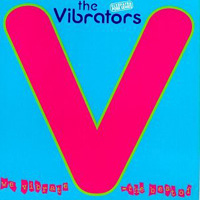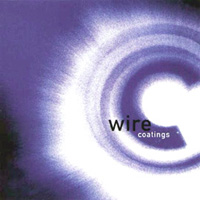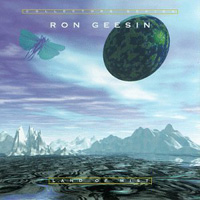 The Vibrators
The Vibrators
We Vibrate (Cleopatra)
by Nik Rainey
If the ever-present jones for reinventing the past until we get it right isn’t enough for the inspiration-starved masses of all tomorrow’s yesterdays, the main by-product of the CD revolution, the digital repackaging of their analog antecedents, continues with no signs of abating. Due to the vagaries of the music business and of popular taste, the same source materials that once fetched downwards of twenty-five cents in the yard sales of the cultural elite have been plucked from their attic-scented cardboard homes, given complete makeovers (“That dark complexion of yours will never do. One application of this Sony shrinkage cream will give you a nice, smooth silvery cast, and the special remastering agents will bring you down from a bulky twelve inches to a nice, svelte five.”), and relocated to upscale neighborhoods lined with compact glass houses with higher rents. Sometimes these musical Jeffersons adapt well to their new digs, other times it’s obvious they should never have left the vinyl ghettoes. Let’s stroll around and take a gander at some of the new residents.
And then, of course, there’s Cleopatra, who continue to heat up some of the lesser-known table scraps from the buggers’ banquet of ’77, a handy reminder of both the sheer quantity of dole proles who followed the Pistols onto the Silver-Jubilee-postage-stamp-sized stages of Anarchy Year Zero and the reasons why so little of it has lasted. (“This Fall at the Cape Cod Melody Tent: Engelbert Humperdinck, Steve and Eydie, and Eater!”) The Vibrators, still together and touring after twenty years (a kind of Paul Revere and the Raiders of punk), are one of the bands that clambered onto the bandwagon the earliest, using the trappings of the genre (bondage/drug imagery, vague swipes at leftist politics) to artfully mask the fact that they were a good ‘n’ soppy pop band at heart. “Baby Baby” and “London Girls,” two of the classic singles featured on the pseudo-greatest hits collection We Vibrate, are straightforward, unabashed love songs, more Dave Clark Five than Buzzcocks, and to my surprise, the genuine old stuff (demos and live tracks from ’77) often strays closer to the pub-rock that immediately preceded it than the numbers re-recorded by an altered lineup in ’91, which sound more like the vintage punk of borrowed memory. Odd. But as their best records (Pure Mania and the Batteries Included collection) are damn near impossible to find these days, We Vibrate enjoyably serves well its function – to refute the allegation that Brit-punk was only militance and mucus.



